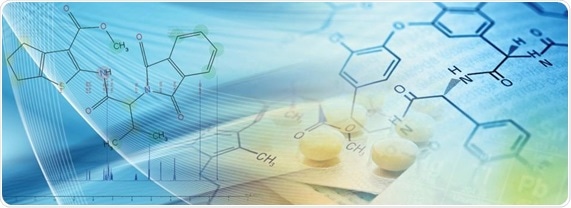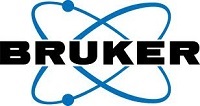In general, the development of pathways and methodologies in order to synthesize target molecules is required when working in synthetic organic chemistry laboratories. The aim is to deliver specific, high-yielding reactions. In order to judge the effectiveness of a synthesis method, organic chemists must analyze their reaction products and by-products intently.

Nuclear Magnetic Resonance (NMR) Spectroscopy
In order to identify and quantify reaction products, a variety of analytical methods are used. These reaction products include mass spectrometry, chromatography, nuclear magnetic resonance (NMR) spectroscopy, and infrared spectroscopy. One of the methods which is used most widely for analyzing organic compounds is NMR.
Structural information relating to organic compounds is provided by NMR, in which the local magnetic field surrounding atomic nuclei is observed in order to provide information about the number of atoms and their molecular environments.
When correctly conducted, NMR delivers results which are clear, well-resolved, and easy to interpret in relation to other methods of analysis. This makes the method particularly suitable for organic compound analysis.
This is a powerful analytical technique. Even though, in general, synthetic organic chemists have good practical experience of NMR, there is a wide range of NMR methods and parameters available. This often makes it difficult for organic chemists to know the most efficient method of analyzing their products.
NMR Instrumentation Time
NMR instrumentation time is often managed inefficiently as it can be easy either to underestimate or overestimate the number of scans and experiments required in order to attain data of a high quality. Consequently, there can be long a wait for analyses as NMR facilities are often overbooked.
Organic chemists can be helped to optimize their analysis time, as well as to produce clear, useful spectra, by automated NMR optimization software like SmartDrive from Bruker BioSpin.
Yet, NMR experts who conduct NMR-based research using the same instruments and who operate analysis services may need complete flexibility to select their own NMR parameters and methods. Consequently, conflicting demands may be placed on the same software and instrumentation by organic chemists and NMR experts who provide analytical services.
SmartDrive Software
During their webinar, SmartDrive product manager Dr. Bjoern Heitmann and Bruker BioSpin Application Scientist Barbara Czarniecki, explain how SmartDrive can meet the needs of NMR experts and synthetic chemists who are using limited NMR services.
Although SmartDrive has been available for quite a while, some feedback has now been collected from users by Bruker Biospin in order to help to further develop the software. The aim is to make it better at balancing the conflicting requirements of NMR experts and synthetic chemists.
An aspect of the IconNMR software, SmartDrive helps to automatically select NMR parameters and experiments in order to maximize the amount of time available and provide results of the highest quality. The number of scans required for a good signal-to-noise ratio is optimized by SmartDrive, without more time being wasted on extra scans.
Moreover, if a molecule structure can be provided by the user, structure verification can be offered by SmartDrive to enable easy NMR interpretation. When no structures can be provided, however, SmartDrive remains fully operational.
Dr. Heitmann demonstrates during the webinar how high-quality results can be achieved quickly by synthetic organic chemists using SmartDrive. He further outlines how the algorithms of SmartDrive decide when additional experiments are required, acquire the optimal number of NUS data points, and optimize experimental parameters.
Black-box analysis is not provided by SmartDrive. Each of its decisions is supported by scientific reasoning which is reported to the user.
Simple Set-Up and Automation
Despite offering straightforward set-up and automation, SmartDrive is fully flexible. Dr. Heitmann uses the webinar to demonstrate how SmartDrive and its individual features can be turned on and off, in order to carry out experiments according to the exact specifications required, while still utilizing any of its useful features.
SmartDrive’s FIXperiment mode can be used by advanced NMR users, in order to conduct NMR experiments exactly as they specify without parameter optimization.
About Bruker BioSpin - NMR, EPR and Imaging

Bruker BioSpin offers the world's most comprehensive range of NMR and EPR spectroscopy and preclinical research tools. Bruker BioSpin develops, manufactures and supplies technology to research establishments, commercial enterprises and multi-national corporations across countless industries and fields of expertise.
Sponsored Content Policy: News-Medical.net publishes articles and related content that may be derived from sources where we have existing commercial relationships, provided such content adds value to the core editorial ethos of News-Medical.Net which is to educate and inform site visitors interested in medical research, science, medical devices and treatments.